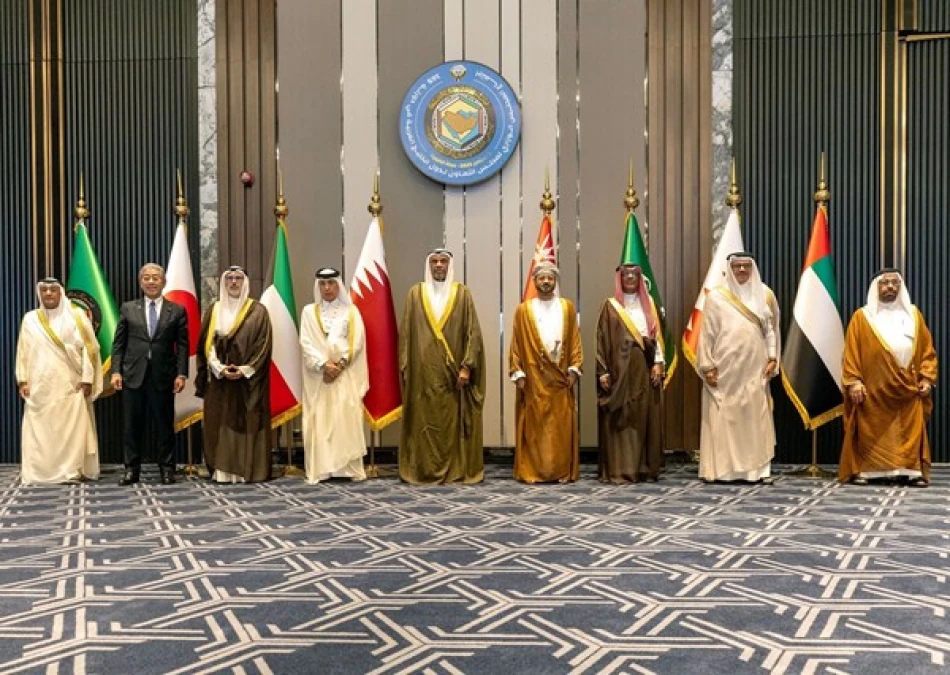
Emirati Delegation Led by Al-Marri Attends 165th GCC Ministerial Council Session
GCC Ministers Reaffirm UAE Island Claims While Deepening Japan Partnership
Gulf Cooperation Council foreign ministers have reinforced their collective stance against Iran's occupation of three UAE islands while simultaneously approving an ambitious four-year action plan with Japan, signaling the bloc's dual focus on regional security and economic diversification. The 165th GCC Ministerial Council meeting in Kuwait demonstrated how Gulf states are balancing territorial disputes with strategic partnerships to secure their long-term interests.
Territorial Solidarity Takes Center Stage
UAE Minister of State Khalifa Shaheen Al Marar led his country's delegation as GCC ministers issued their familiar but strategically important condemnation of Iran's control over the islands of Greater Tunb, Lesser Tunb, and Abu Musa. This recurring diplomatic ritual serves multiple purposes beyond mere rhetoric.
The islands, seized by Iran in 1971, sit astride crucial shipping lanes in the Strait of Hormuz through which roughly 20% of global oil passes daily. By maintaining unified opposition, the GCC preserves the UAE's legal claims while demonstrating collective security principles that could apply to future territorial disputes in the region.
Strategic Messaging Beyond Iran
The GCC's consistent position on these islands reflects broader concerns about Iranian influence across the Gulf. With Iran's proxy networks active in Yemen, Iraq, and Lebanon, Gulf states view territorial solidarity as essential deterrence against further Iranian adventurism. The timing is particularly relevant as regional powers recalibrate relationships following recent diplomatic breakthroughs between Saudi Arabia and Iran.
Japan Partnership Signals Economic Pivot
More consequential for long-term Gulf interests was the approval of the 2024-2028 GCC-Japan joint action plan. This represents Japan's systematic approach to securing energy partnerships while offering Gulf states access to advanced technology and diversification opportunities.
Japan's energy security concerns have intensified since the Ukraine conflict disrupted global supply chains, making Gulf partnerships increasingly valuable. For GCC states, Japan offers a technology-rich alternative to traditional Western partnerships, particularly in areas like renewable energy, artificial intelligence, and advanced manufacturing.
Learning from Asian Success Models
The GCC-Japan framework mirrors successful partnerships Japan has developed with other resource-rich regions, combining energy security with technology transfer. Unlike partnerships with China, which carry geopolitical risks, or with European nations focused primarily on energy, Japan offers Gulf states access to cutting-edge innovation without significant political complications.
This approach aligns with Gulf states' Vision 2030-style economic transformation plans, which prioritize technological advancement and industrial diversification beyond oil dependence.
Balancing Act in a Multipolar World
The Kuwait meeting exemplified how Gulf states navigate an increasingly complex international landscape. By simultaneously confronting Iran while deepening ties with Japan, the GCC demonstrates its evolving diplomatic sophistication.
This dual approach reflects lessons learned from previous regional crises. Rather than relying solely on traditional security guarantors, Gulf states are building diverse partnerships that serve both immediate security needs and long-term economic transformation goals.
The GCC's strategy appears increasingly focused on creating multiple diplomatic and economic options while maintaining core security principles—a pragmatic approach that positions the bloc for sustained influence regardless of shifting global power dynamics.
Most Viewed News

 Layla Al Mansoori
Layla Al Mansoori






